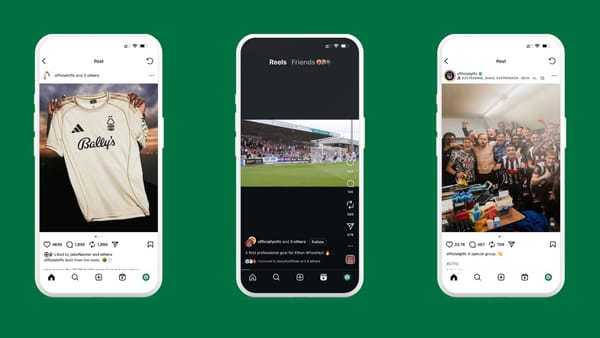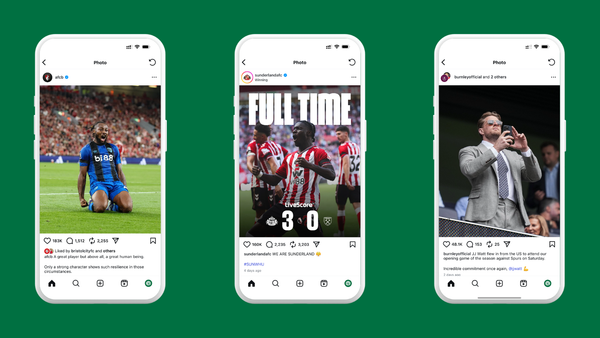What fans value - and how you can deliver it
It's not just about trophies. A strong club brand is built on fan passion and loyalty. A recent study has highlighted six simple ways clubs can strengthen their identities and keep fans coming back.
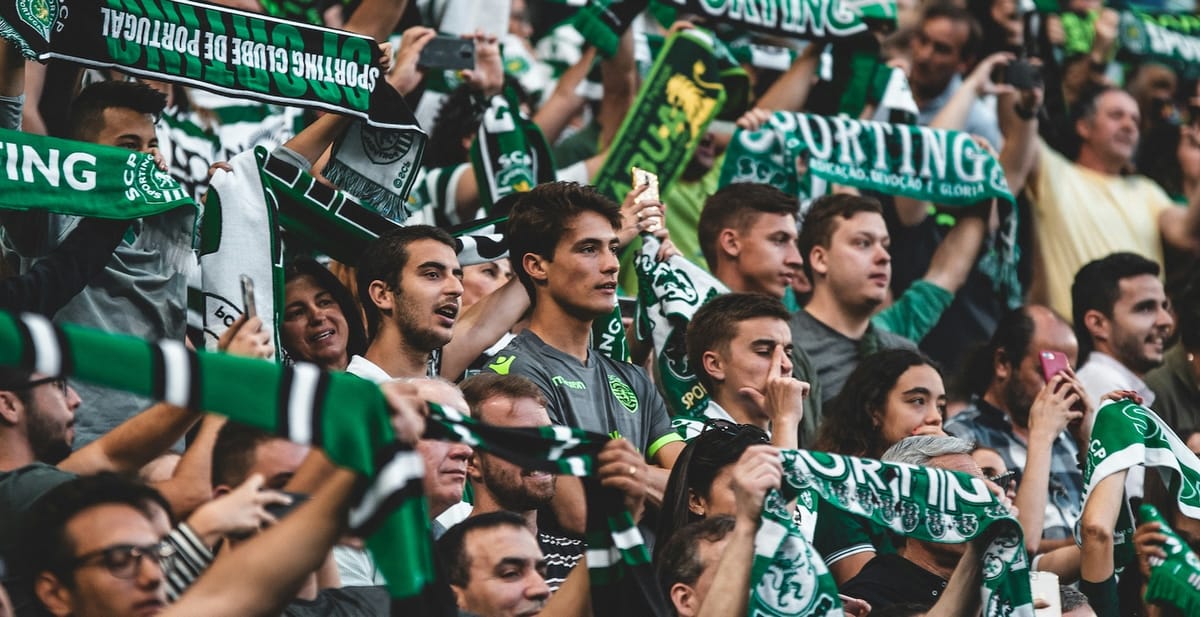
Football clubs are more than just teams: they're brands powered by fans' emotions, history, and loyalty.
A 2024 study in Türkiye looked at developing a brand positioning strategy for clubs based on fan-based equity. For a traditional business, their brand is built through advertising or product quality. For football clubs, the strength of their brand comes mostly from supporter perception, loyalty, and emotional connection.
This means "fan-based equity" is the value that the club's brand has because of the way fans see it, feel about it, and choose it over others. Think about it as the value of your club in the hearts and minds of your supporters. It's how much fans:
- Care about the club.
- Recognise and identify with it.
- Believe in its quality.
- Feel connected through memories and emotions.
When fans feel all of this, you earn their trust, passion, and word-of-mouth support. That's what builds a strong brand. And the stronger the bond, the more likely fans will keep turning up, buying shirts, and passing on their love of the club to the next generation.
The best bit about the study's findings? They're things that any club can use, no matter the budget. In a nutshell, they are:
- Team history and success.
- Social interaction among fans.
- Handling criticism.
- Management, staff, and stadium features.
- Fanaticism (passion and identity).
- Club loyalty to fans.
Below I'll summarise each one and give you examples of how you can use them.
Team history and success
Fans take pride in their club's past. It doesn't matter whether it's lifting trophies or winning local derbies, you should play up on your successes. The more recent the better!
For example, celebrate club milestones. It doesn't matter how small they may seem, remember these achievements are all relative. "10 years in the league" can be an achievement, as can "the famous cup upset",
York City recently celebrated the 30th anniversary of them beating Man United 3-0 at Old Trafford. They produced a special edition matchday programme which contained an interview with one of the goalscorers as well as a curated feature from the club historian. And the content surrounding it on Instagram performed well compared to the other matchday stuff going on that same day.
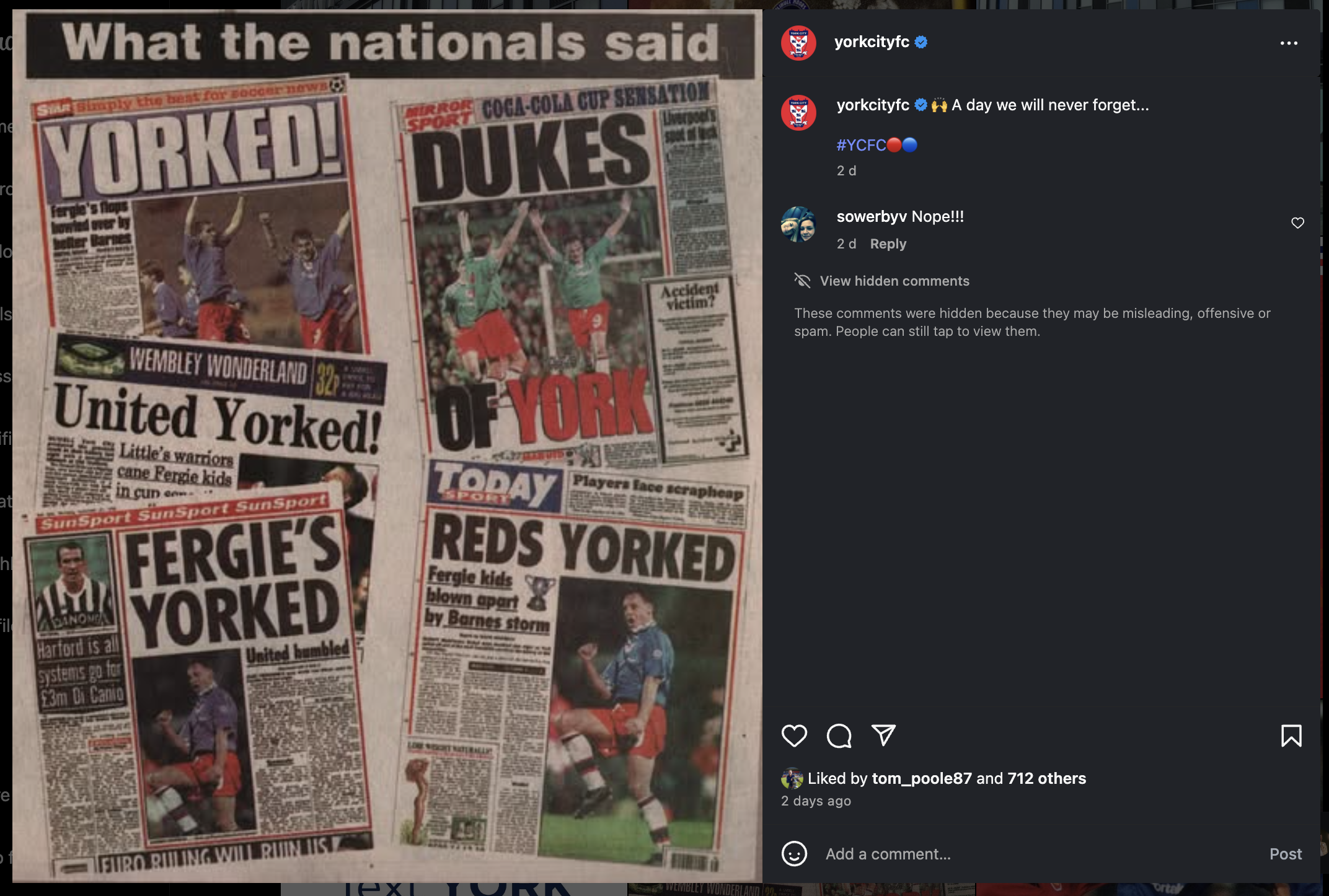
Social interaction among fans
A big part of supporting a club is being part of the community. While the big examples of these include fan zones and support groups - which can be local or around the world - there are ways of facilitating these online that go past just "posting to social media".
You could host online watch parties, beambacks, or even get involved in a platform like Reddit. That's what Spurs have done. And Arsenal are currently recruiting for someone to look after their official Reddit presence, so expect to see them joining the party soon.
Give plans a place to talk and meet likeminded people. Your community is something to be proud of. It's why initiatives like the Premier League's events in America do well.
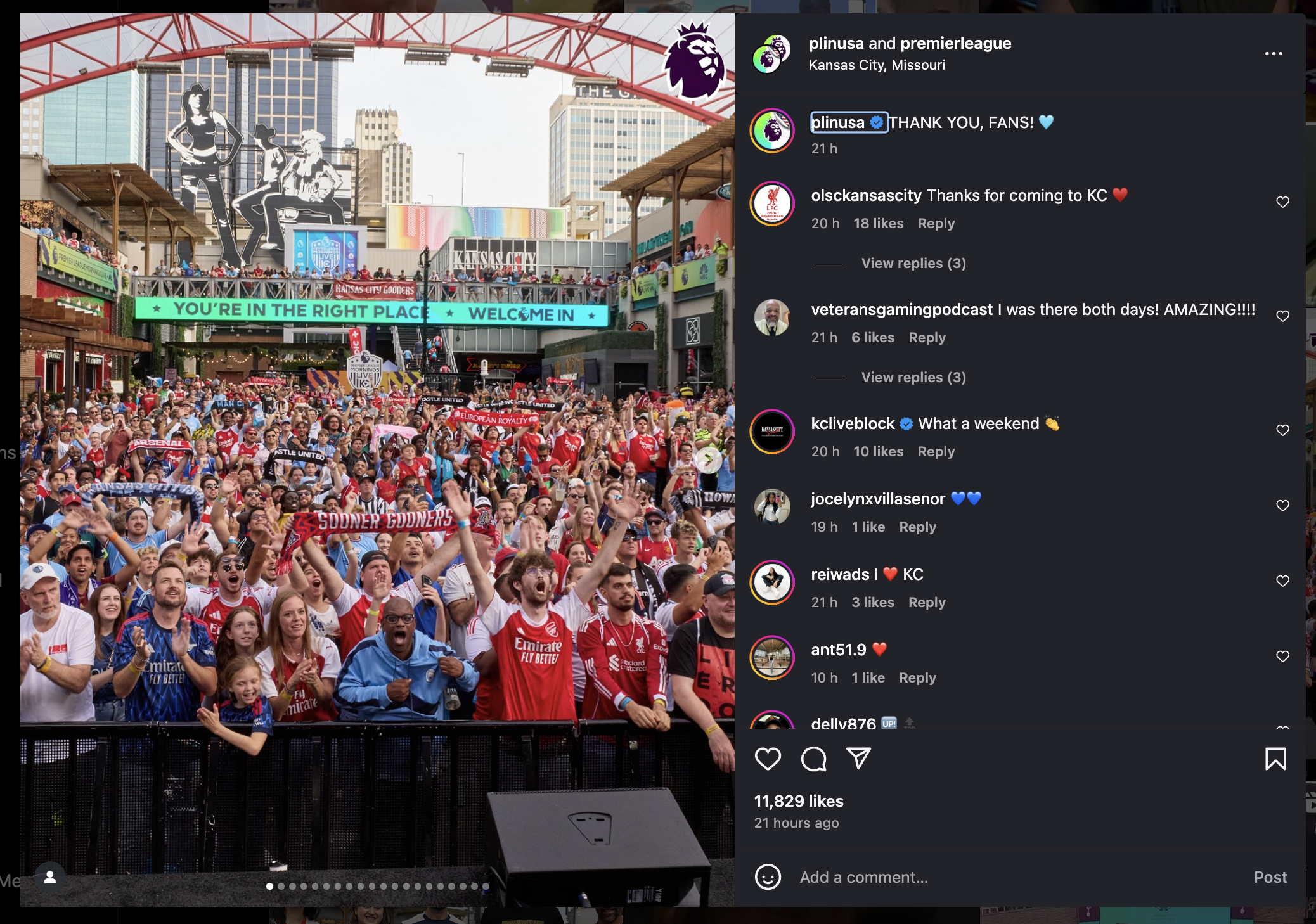
Handling criticism
No club gets it right all of the time. But how you deal with those setbacks can help strengthen your brand.
First of all, transparency builds trust. Be open and honest. If results are poor, explain why. Share the challenges your club is facing and bring fans along for the journey.
When the news broke recently that schools in Scotland were selling tickets to Newcastle matches, fans were angered due to the difficulty in getting hold of tickets for members. The club took action after discovering that there was a "batch of season tickets sold to a small number of tour organisers during the 2015/16 season" that were still being used despite "no formal contract".
Management, staff, and stadium features
Fans respect professionalism, both on and off the pitch. For example, new modern stadiums boost a club's image. Fans get proud and protective of their team's homes. Obviously this isn't feasible to do every other week.
Instead, tell the stories of staff who have been around the club for a long time. Shine a spotlight on the volunteers who make things happen on a match day. And be sure to let fans know about improvements to your stadium, no matter how small.
Bradford have demonstrated this by showing the work being done to replace signage at the stadium recently.
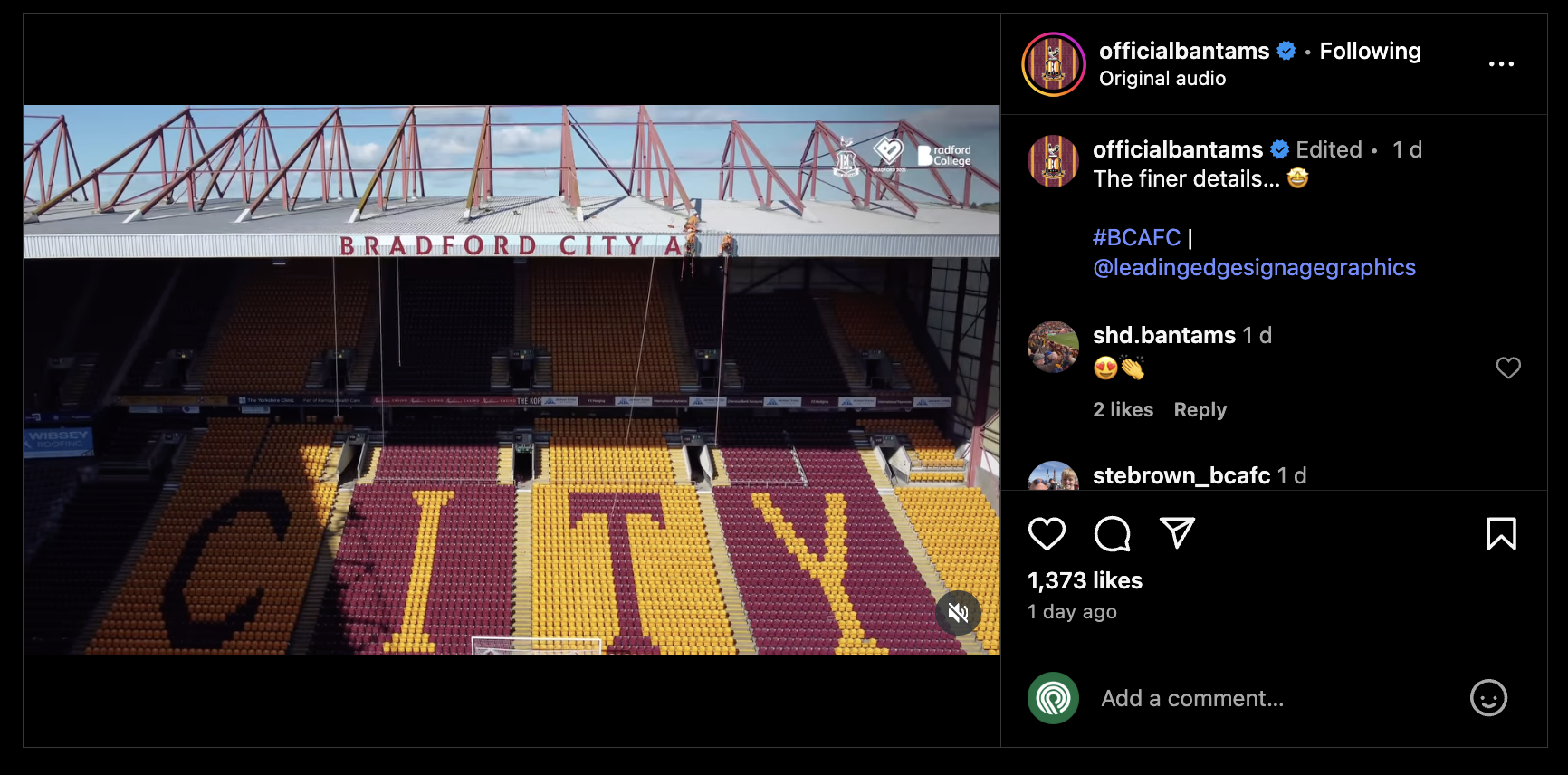
Fanaticism (passion and identity)
Fans want their club to feel like part of who they are. This factor is the level of passion and intensity that they feel for the club.
The stronger the fanaticism, the harder it is for fans to drift away in tough times. These fans create the atmosphere that gives clubs their personality and appeal. It then fuels traditions, songs, flags, tifos, and the culture that makes a club unique.
In the Bundesliga in particular the ultras scene is particularly strong. They often use megaphones to start chants during games, and some teams have drummers that go to every game to build the atmosphere.
It's what you have that makes you memorable and unique. Portland Timbers, for example, have Timber Joey who saws a slab off a log for every goal the team scores and presents it to the goalscorer.
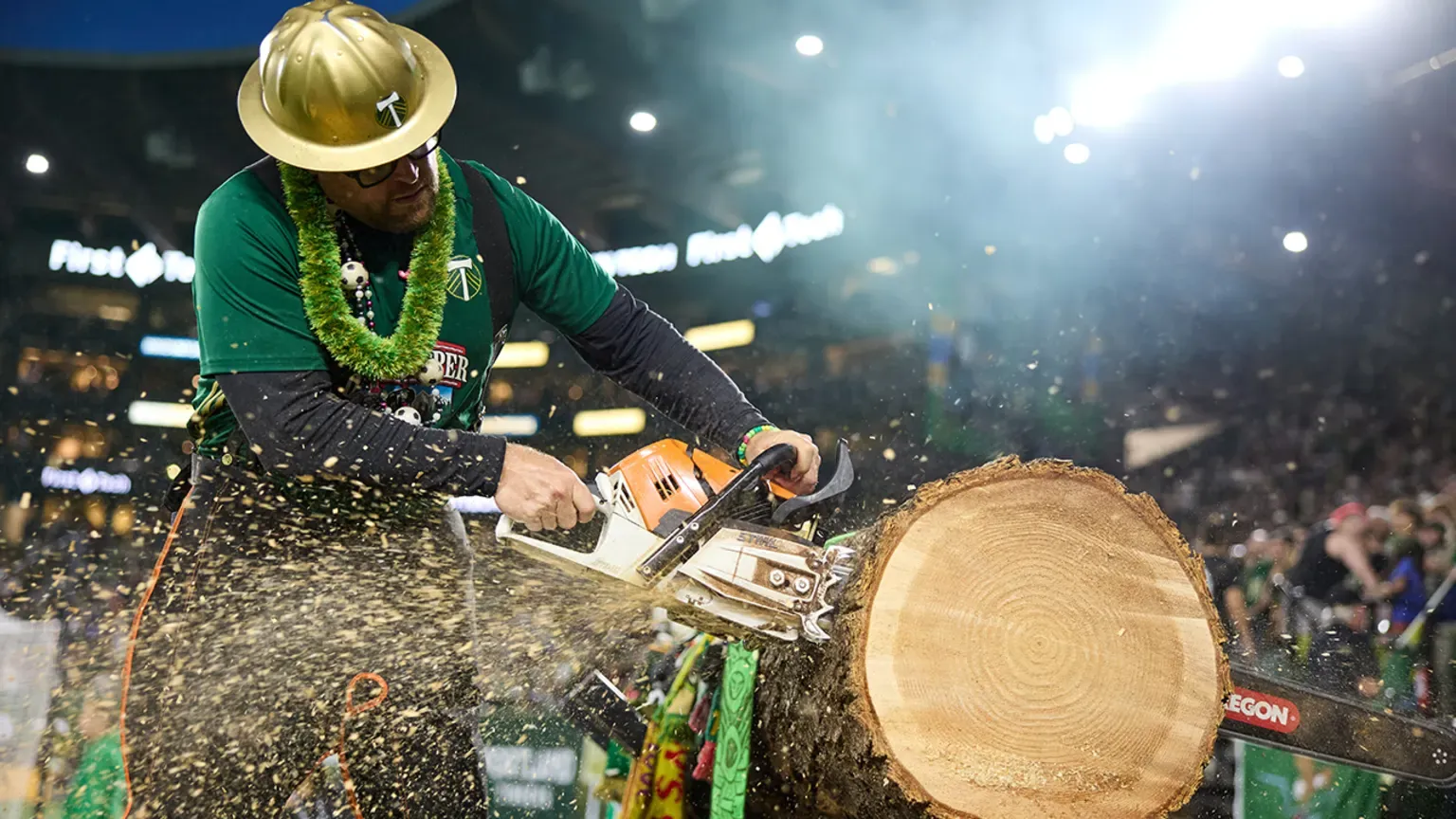
What can you provide fans that is unique to your club?
Club loyalty to fans
This is the other side of the relationship: fans want to feel like the club is loyal to them. How do you treat fans in good times and bad? Fans should feel included, valued, and never taken for granted. This builds trust and goodwill that can carry you through tough seasons.
You don't need to do big gestures to demonstrate this one. A simple thank-you to long-standing season ticket holders, birthday messages, or spotlighting loyal fans on social media shows your appreciation.
It's something Sunderland are doing particularly well following their promotion back to the Premier League. The team are telling the stories of the fans who follow them as they recognise how central fans should be to their identity.
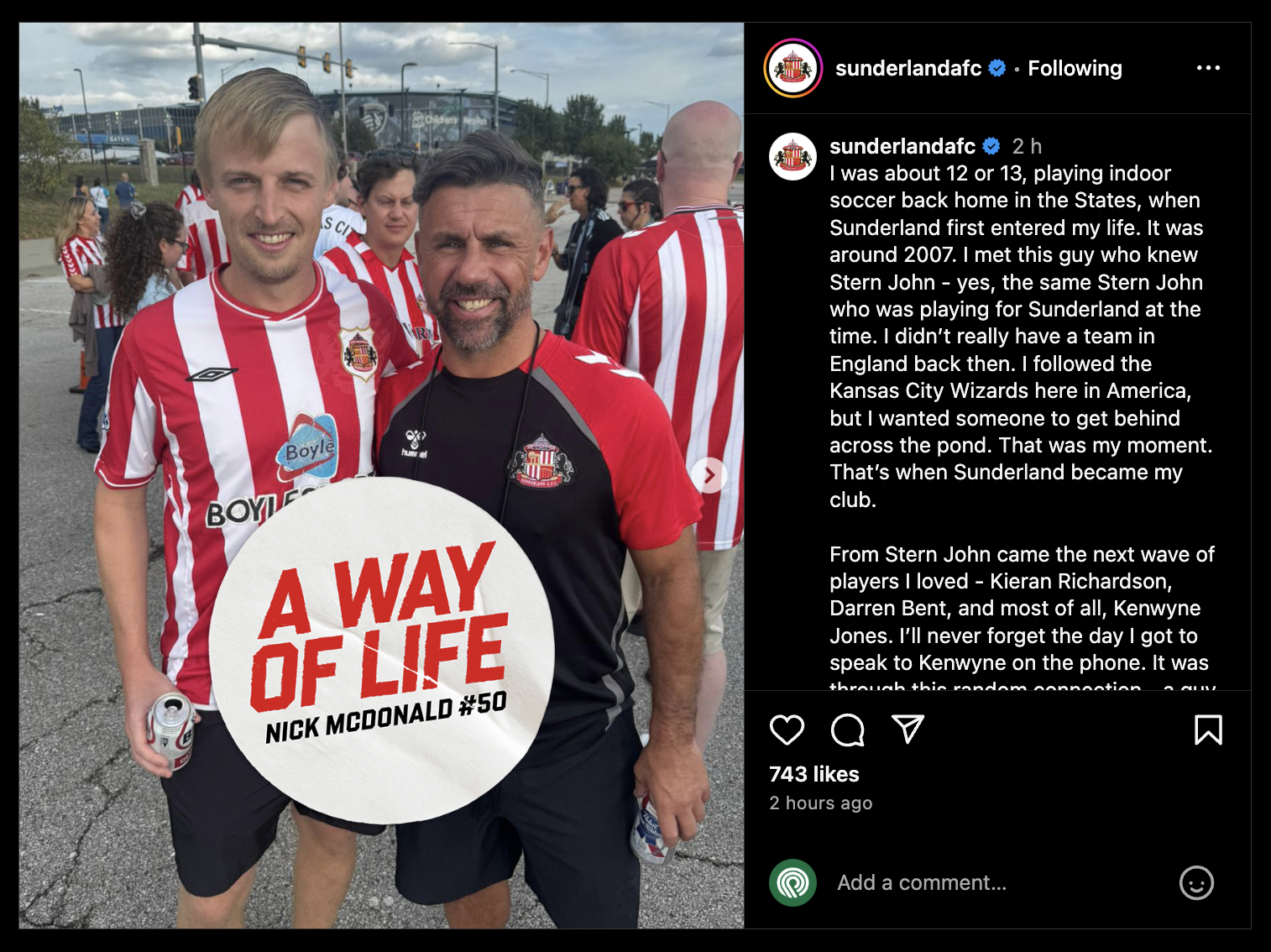
In conclusion
At every level of football your fans are your brand. It's not enough to be successful on the pitch - not every team can do that every season - you also need to nurture passion, loyalty, and identity among your supporters.
By celebrating history, connecting your community, and showing fans they matter, you can build this bond regardless of the size of your budget.
Start small. Pick one of the factors, put it into action this season, and watch how it changes the way your fans feel about the club.



